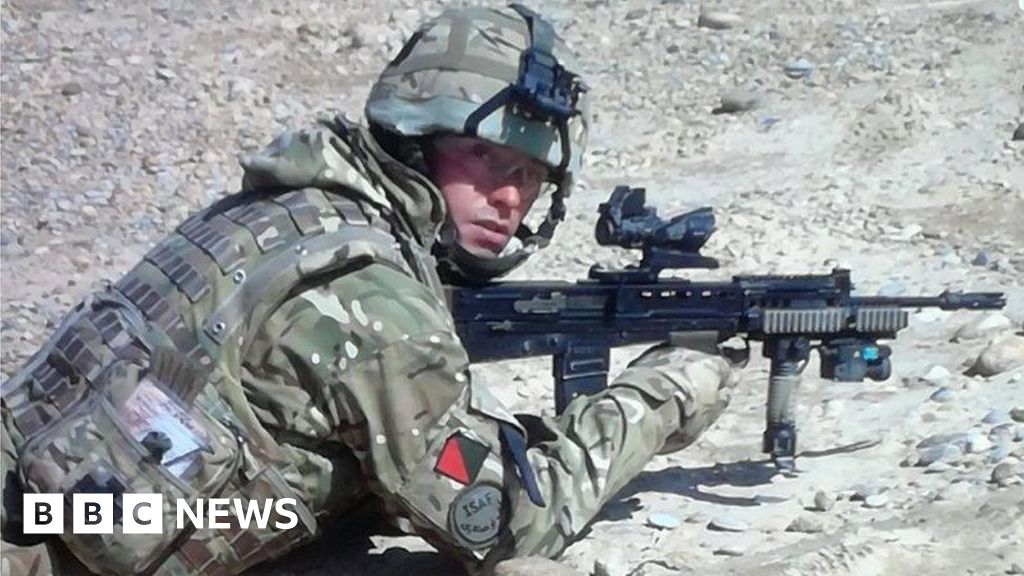
Mercian Regiment
| Use attributes for filter ! | |
| Arm Badge | Stafford Knot |
|---|---|
| Staffordshire Regiment | |
| Motto | "Stand Firm and Strike Hard" |
| Mascot | Ram (Private Derby XXXII) |
| Colonel in Chief | The Prince of Wales |
| Founded | September 1 |
| 2007 | |
| March | Wha Wadna Fecht for Charlie/Under the Double Eagle (Quick); Stand Firm and Strike Hard (Slow) |
| Date of Reg. | |
| Date of Upd. | |
| ID | 2417430 |
About Mercian Regiment
The Mercian Regiment is an infantry regiment of the British Army, which is recruited from five of the counties that formed the ancient kingdom of Mercia. Known as 'The Heart of England's Infantry', it was formed on 1 September 2007 by the amalgamation of three existing regiments.
Soldiers reunited with 'left behind' Afghan interpreter

... The Mercian Regiment veterans felt he was " left behind" and...
'Dozens' of British troops diagnosed with Q fever

... Battalion of The Mercian Regiment, says that his life was ruined after Contracting the disease working him nervous suffering, in pain and unable to...
British soldier sues army over the Q-fever chronic fatigue syndrome

... In 2011, Mr Bass, then a private serving with 2nd Battalion The Mercian Regiment, was deployed to Helmand Province, to an area known for its heavy Taliban presence and fire...
'Dozens' of British troops diagnosed with Q fever
Wayne Bass says his life was ruined After contracting the disease
At least 90 British Military Personnel have been diagnosed with Q fever After serving in Helmand, Afghanistan, a court has heard.
After catching the disease while serving there in 2011/12.
Wayne Bass says the Army should have provided antibiotics to protect him from the disease.
The MoD denies that any action could have been taken to avoid him contracting Q fever.
Mr Bass, formerly a private serving with 2Nd Battalion The Mercian Regiment , says his life was ruined After contracting the disease, which left him suffering nerve pain and unable to work.
The five-day trial is The First to test the MoD's duty to protect against Q fever, his lawyers say.
Wayne Bass, as a young soldier and more recentlyHumans can catch Q fever by breathing in dust from the faeces of infected farm animals.
During his tour, lawyers for Mr Bass said he was in contact with goats and sheep and "was often required to take cover and jump through ditches and crawl along the ground - coming into contact with animal products and excrement".
Lt Col Mark Bailey , a consultant in infectious diseases and tropical medicine and a national expert in Q fever, told The Trial on Tuesday that 90 military and 10 civilian cases of the disease had been referred to him.
He confirmed the military cases had all served in Helmand and had "built up from 2008".
Col Bailey said there had been no new cases from Afghanistan since 2014, although there were occasionally military cases from other locations, including Cyprus.
He said there had been no UK deaths in his group, although one British soldier "very, very nearly died" as a result of the disease and subsequent Complications .
Wayne Bass served in Helmand in 2011Mr Bass, 34, was medically discharged from the Army in 2014 because of his Q fever and chronic fatigue symptoms.
His case is that the MoD should have considered using doxycycline, an antibiotic used to treat Q fever, as an anti-malarial drug.
But the MoD says it would not have been reasonable to use doxycycline due to its side-effects and because it would have compromised the effect of anti-malarial drugs given to troops.
Gp Cpt Andrew Green, director of infection prevention and control at The Royal Centre for Defence Medicine, told the court that among International Security Assistance Force troops there were 46 confirmed cases of malaria in 2010, but none among British personnel.
Gp Capt Green said most were US personnel who were taking doxycycline, showing the drug was "failing to prevent malaria".
He said drugs are no longer advised for the prevention of malaria in Afghanistan and there is a "bite avoidance" approach" for UK troops currently deployed there.
british army
Source of news: bbc.com





